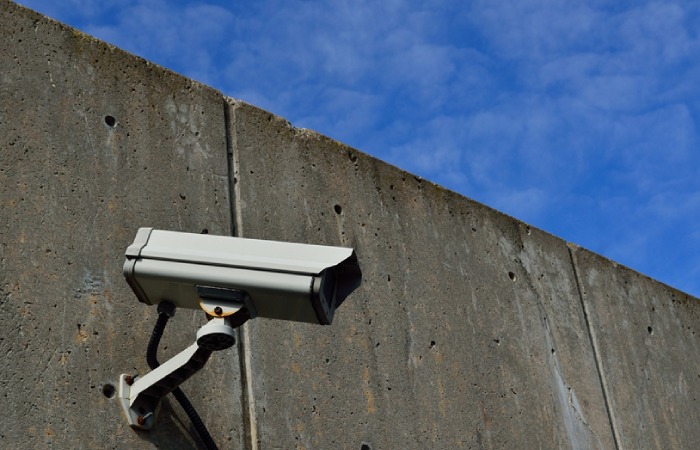Managing rental properties can be challenging enough, but the complexities multiply when your investments are out of state. However, successfully managing online real estate can be a breeze with the right strategies and a proactive approach.
Do you want tips and insights on how to manage out-of-state rental properties? From hiring reliable local teams and utilizing technology to maintaining effective communication, this article is the perfect guideline for navigating long-distance property management’s unique challenges. Now, let’s dive in.
Table of Contents
How to Manage Out-of-State Rental Properties?
1. Build a Reliable Local Team
An essential step in managing long-distance properties is establishing a trustworthy network of local professionals. Consult a dedicated property manager to maintain your rental property with regular inspections, tenant screening, rent collection, and maintenance. These professionals can also seek reliable contractors, handymen, and vendors who promptly address property repairs and emergencies. Building a dedicated local team will ensure your properties are well-maintained and tenants receive timely assistance.
2. Leverage technology

Embrace technology to streamline management tasks and enhance communication. Utilizing online property management software to track finances, lease agreements, and maintenance requests makes your work more seamless and can reduce the pressure of needing physical copies. You can also install smart home devices that allow you remotely monitor your property and stay connected, regardless of your physical location.
3. Maintain Effective Communication
Every long-distance landlord should make clear and consistent communication a priority. Establishing efficient communication channels will allow you to respond promptly to tenant requests and general inquiries. You should use a platform that is accessible and easy to use for both yourself and your tenants. Email, phone, or a dedicated online portal are excellent options to help you stay current and keep renters informed on property policy changes.
4. Stay Informed about Local Regulations
Familiarize yourself with the local rental laws and regulations governing your properties. Each state may have different tenant rights, eviction procedures, and property maintenance requirements. Staying updated on changes in legislation can help you ensure compliance and avoid legal complications. It would be best to engage local experts with a better understanding to ensure you adhere to the specific regulations applicable to your out-of-state rental properties.
5. Plan for Contingencies
Prepare for unexpected situations by having contingency plans in place. You should identify trusted individuals who can act on your behalf in emergencies or unanticipated events. Preparing financial reserves to cover unexpected repairs, vacancies, or other unforeseen circumstances can help you work promptly to conserve your investments.
Pros and Cons of Being an Out-of-State Rental Owner
Pros:
1. Diversification and Investment Opportunities
One of the perks of being an out-of-town landlord is that it allows you to diversify your real estate portfolio and take advantage of different market conditions. It will enable investors to tap into potentially more profitable markets or invest in areas with high rental demand and better long-term prospects.
2. Access to New Tenant Markets
Owning out-of-state properties expands your potential tenant pool. You can attract renters from different demographics, industries, and backgrounds, which may lead to a broader selection of high-quality tenants.
3. Professional Property Management
Managing out-of-state properties often necessitates hiring professional property management services. While this incurs additional costs, it frees up your time and energy. Expert property managers can handle daily landlord tasks while ensuring your investments are well-managed even from a distance.
Cons
1. Limited Hands-On Management
Physical distance can make hands-on decision-making and management more difficult to address. With a local team, resolving immediate issues, conducting regular inspections, or overseeing repairs personally may be more manageable.
2. Higher Reliance on Local Professionals
Managing out-of-state properties requires building a reliable network of local professionals, such as property managers, contractors, and vendors. However, finding trustworthy individuals and ensuring consistent quality of service can take time and effort. The distance can also make resolving employee disputes or promptly handling emergencies harder.
3. Additional Costs and Travel Expenses
Owning out-of-state rental properties often entails increased expenses. In addition to property management fees, you may need to budget for regular travel to visit your properties, conduct inspections, or meet with your local team. These additional costs can impact your profitability, especially if the properties generate little cash flow.
Importance of Routine Inspections in Managing Out-of-State Rental
1. Property Condition and Maintenance
Conduct routine inspections to assess the condition of your rental property and identify any maintenance or repair needs. Regular reviews can help you address issues before they escalate and ensure that your property is well-maintained and complies with safety standards.
2. Tenant Compliance and Lease Adherence
Inspections provide an opportunity to ensure that tenants comply with the terms of their lease agreements. You can verify that tenants are following occupancy limits, properly maintaining the property, and adhering to any specific guidelines outlined in the lease. Routine inspections help prevent unauthorized subletting, pet violations, or any other lease violations that may impact the property or cause legal issues.
3. Tenant Satisfaction and Communication
Conducting routine inspections demonstrates your commitment to tenant satisfaction and open lines of communication. By actively engaging with your tenants, you can foster a positive landlord-tenant relationship and increase tenant retention. Routine inspections allow you to address issues before they escalate and ensure they feel valued and heard.
Conclusion
Managing out-of-state properties can be daunting, but it can also be rewarding with the right local team to protect your investment. Ensuring a clear channel for communication, leveraging technology, and planning for contingencies can help extend your property’s longevity and provide a safe and comfortable living environment for your tenants.
Despite requiring heavy reliance on a local team and additional costs, out-of-state rental properties allow investors to tap into a wider tenant pool and more lucrative markets. Routine inspections can also help you better control your out-of-state rental properties, minimize risks, and ensure that your property and tenants are well-cared for.

